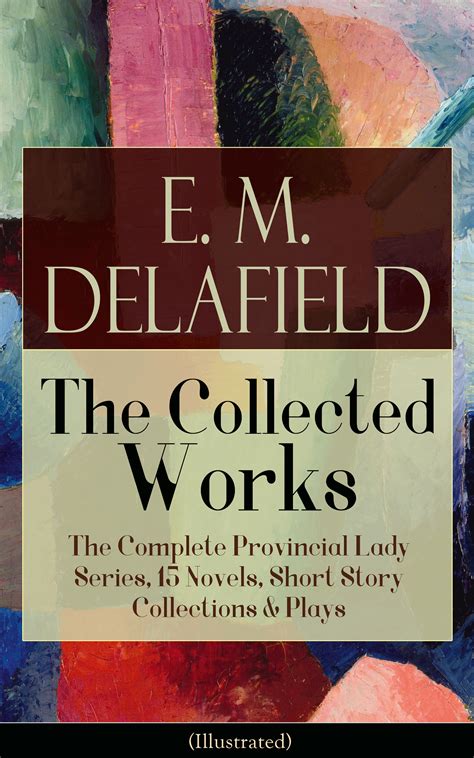A Quote by Steve Martin
Mirabelle replaces the absent friends with books and television mysteries of the PBS kind. The books are mostly nineteenth-century novels in which women are poisoned or are doing the poisoning. She does not read these books as a romantic lonely hearts turning pages in the isolation of her room, not at all. She is instead an educated spirit with a sense of irony. She loves the gloom of these period novels, especially as kitsch, but beneath it all she finds that a part of her indentifies with all that darkness.
Quote Topics
Absent
Absent Friends
Beneath
Books
Century
Darkness
Does
Doing
Educated
Finds
Friends
Gloom
Hearts
Her
Instead
Irony
Isolation
Kind
Kitsch
Lonely
Lonely Heart
Loves
Mostly
Mysteries
Novels
Pages
Part
Pbs
Period
Poisoned
Poisoning
Read
Romantic
Room
Sense
She
Spirit
Television
Turning
Which
Women
Women Are
Related Quotes
The difficulty will be to keep her from learning too fast and too much. She is always sitting with her little nose burrowing into books. She doesn't read them, Miss Minchin; she gobbles them up as if she were a little wolf instead of a little girl. She is always starving for new books to gobble, and she wants grown-up books--great, big, fat ones--French and German as well as English--history and biography and poets, and all sorts of things. Drag her away from her books when she reads too much.
In Tereza’s eyes, books were the emblems of a secret brotherhood. For she had but a single weapon against the world of crudity surrounding her: the novels. She had read any number of them, from Fielding to Thomas Mann. They not only offered the possibility of an imaginary escape from a life she found unsatisfying; they also had a meaning for her as physical objects: she loved to walk down the street with a book under her arm. It had the same significance for her as an elegant cane from the dandy a century ago. It differentiated her from others.
There was another reason [she] took her books whenever they went away. They were her home when she was somewhere strange. They were familiar voices, friends that never quarreled with her, clever, powerful friends -- daring and knowledgeable, tried and tested adventurers who had traveled far and wide. Her books cheered her up when she was sad and kept her from being bored.
Forever, reading has been central, the necessary fix, the support system. Her life has been informed by reading. She has read not just for distraction, sustenance, to pass the time, but she has read in a state of primal innocence, reading for enlightenment, for instruction, even. ... She is as much a product of what she has read as of the way in which she has lived; she is like millions of others built by books, for whom books are an essential foodstuff, who could starve without.
She was made up of more, too. She was the books she read in the library. She was the flower in the brown bowl. Part of her life was made from the tree growing rankly in the yard. She was the bitter quarrels she had with her brother whom she loved dearly. She was Katie's secret, despairing weeping. She was the shame of her father stumbling home drunk. She was all of these things and of something more...It was what God or whatever is His equivalent puts into each soul that is given life - the one different thing such as that which makes no two fingerprints on the face of the earth alike.
She had lolled about for three years at Girton with the kind of books she could equally have read at home--Jane Austen, Dickens, Conrad, all in the library downstairs, in complete sets. How had that pursuit, reading the novels that others took as their leisure, let her think she was superior to anyone else?
Once upon a time, there was a girl named Grace Brisbane. There was nothing particularly special about her, except that she was good with numbers, and very good at lying, and she made her home in between the pages of books. She loved all the wolves behind her house, but she love one of them most of all.
She remembered the heroines of novels she had read, and the lyrical legion of those adulterous women began to sing in her memory with sisterly voices that enchanted her. Now she saw herself as one of those amoureuses whom she had so envied: she was becoming, in reality, one of that gallery of fictional figures; the long dream of her youth was coming true.
Her library would have been valuable to a bibliophile except she treated her books execrably. I would rarely open a volume that she had not desecrated by underlining her favorite sections with a ball-point pen. Once I had told her that I would rather see a museum bombed than a book underlined, but she dismissed my argument as mere sentimentality. She marked her books so that stunning images and ideas would not be lost to her.
Yeah I was aware of the book, but hadn't read it. So as soon as I'd finished the script, I got a copy of the book and read that. My wife had read it and she loves it, so that was a good sounding board. I like her writing style, she's such a page-turner. I enjoyed The Constant Princess as well. I think she's great. The books are very popular with women and I can see why.
I remember one letter from a girl in a midwestern town who read one of my books and thought she had discovered it- that no one had ever read it or knew about it. Then one day in her local library she found cards for one or two of my other books. They were full of names- the books were borrowed all the time. She resented this a bit and then walked around the town looking in everybody's face and wondering if they were the ones who were reading my books. That is someone I write for.
The apartment was entirely, was only, for her: a wall of books, both read and unread, all of them dear to her not only in themselves, their tender spines, but in the moments or periods they evoked… Her self, then, was represented in her books; her times in her records; and the rest of the room she thought of as a pure, blank slate.
She sits in her usual ample armchair, with piles of books and unopened magazines around her. She sips cautiously from the mug of weak herb tea which is now her substitute for coffee. At one time she thought that she could not live without coffee, but it turned out that it is really the warm large mug she wants in her hands, that is the aid to thought or whatever it is she practices through the procession of hours, or of days.


































